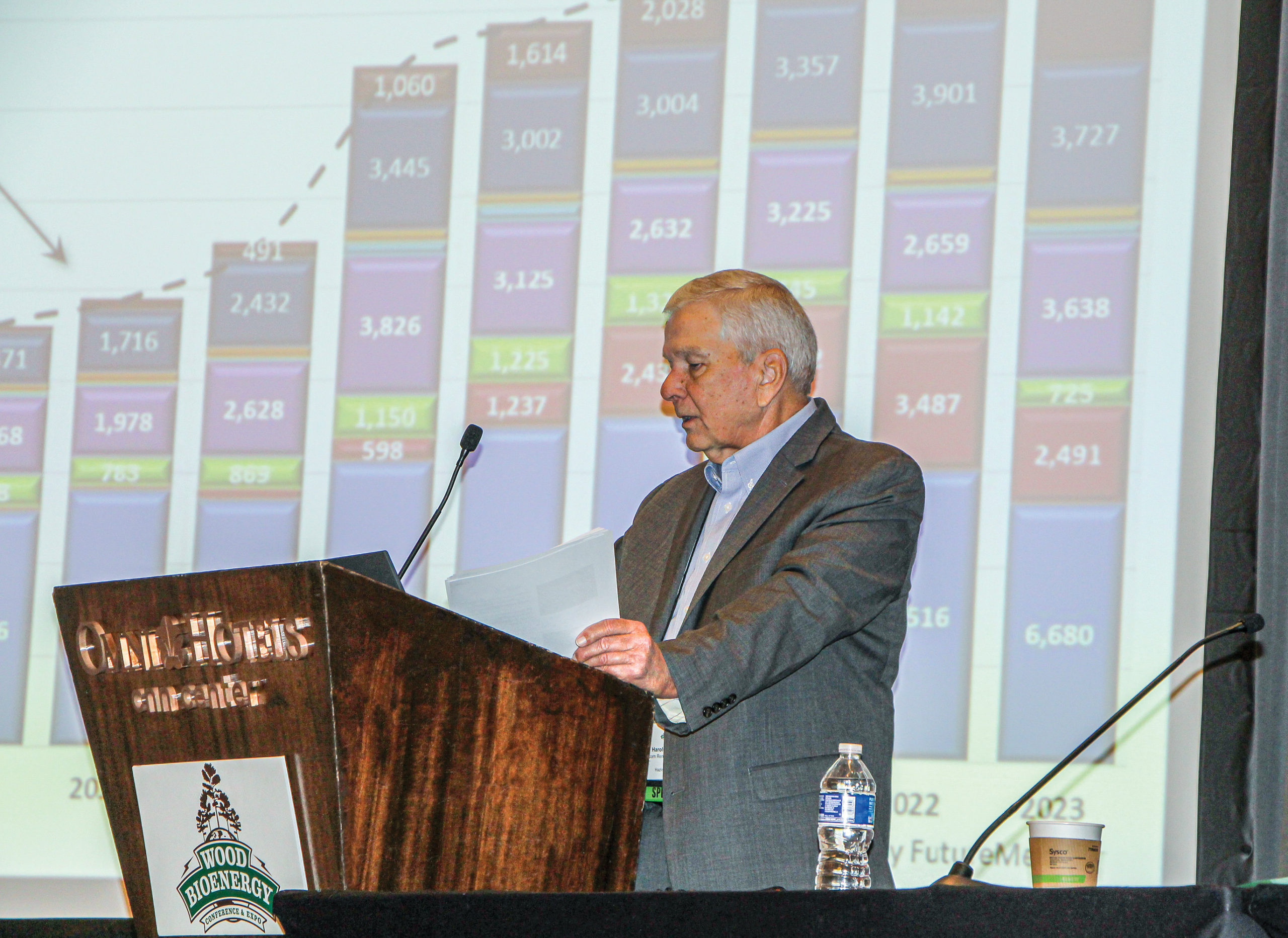Staying Focused: Fram Fuels’ Harold Arnold Leads Off Wood Bio Conference Presentations
More than 200 people participated in the conference, which included presentations from 22 experts and showcased 50 technology and supply exhibits.
“I believe the depth and range of the presentations was the best we’ve ever had,” comments Rich Donnell, Co-Chairman of the event and Editor-in-Chief of Wood Bioenergy magazine, which served as co-host along with Georgia Research Institute. The theme of the conference going in was “Energy That Works,” but Donnell added that it could have been “On The Ground & In The Air,” referencing speeches on timberlands and aviation fuel, with a healthy dose of wood pellets and heat energy in the mix.
“The speakers did a great job of putting their fingers on the pulse of where the wood bioenergy industry is today and where it will go from here,” Donnell added.
Leading off the first morning keynoters session, Fram Renewable Fuels President Harold Arnold, as he always has, sprinkled in some reality: “Biomass has a future but it’s not all rosy.”
Arnold is one of the pioneers of industrial wood pellets in the U.S., with Fram building its first pellet facility, Appling County Pellets, in 2007 in Baxley, Ga. Fram now operates three pellet facilities, including a recently modernized one, Hazlehurst Wood Pellets in Georgia.
Fram noted the benefits of wood pellets—sizing and drying wood fiber, changing the energy density, improving the transportability—and also emphasized the factors that influence pellet consumption—weather, intermittent renewables, natural gas prices, worldwide energy crisis.
It didn’t get any better in 2023, with reduced generation and lessened demand, costs still not deflating and prices tanking. Meanwhile transportation bottlenecks surfaced in the Panama Canal and Suez Canal/Red Sea.
Addressing 2024, Arnold said most producers are suffering economically, spot prices continue to slide, supply and demand are out of balance with warehouses full. Nevertheless, Arnold said, the industry remains eternally, and amazingly, optimistic, with new projects and new expansions announced.
Citing information provided by renown consultant William Strauss of FutureMetrics, Arnold said industrial pellet fuel markets could be nearly 55 million metric tons per year come 2030. Arnold pointed to good and growing markets in Japan and Korea, and a potential market in Taiwan. Another slide from FutureMetrics showed a potential global pellet demand (industrial and heating) of 85 million metric tons in 2030 and a possible shortfall of 35 million metric tons after production capacity.
Arnold briefly touched on new markets, but noted those opportunities are yet to be realized. As for now, Arnold said, “Producers are in trouble. Change is on its way.”
Latest news
John King Chains Celebrates 100th Year
John King Chains Celebrates 100th YearJohn King Chains Group is celebrating its 100th anniversary in 2026. Established in Leeds, England in 1926, the enterprise began by producing plain pedestal bearings for coal mining pit tubs. Expansion came with the rapid...
Weyco Wood Fiber Will Feed Aymium Biocarbon
Weyco Wood Fiber Will Feed Aymium Biocarbon Weyerhaeuser Co. and Aymium entered a memorandum of understanding (MOU) to partner to produce and sell 1.5 million tons of sustainable biocarbon annually for use in metals production. As an initial stage of this partnership,...
Find Us On Social
Subscribe to Our Newsletter
Wood Bioenergy News Online hits the inboxes of subscribers in the wood-to-energy sectors.
Subscribe/Renew
Wood Bioenergy is published and delivered worldwide 6 times per year. Free to qualified readers in the U.S. Subscribers outside the U.S. are asked to pay a small fee.
Advertise
Complete the online form so we can direct you to the appropriate Sales Representative.

